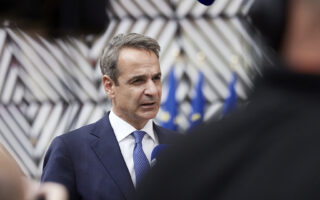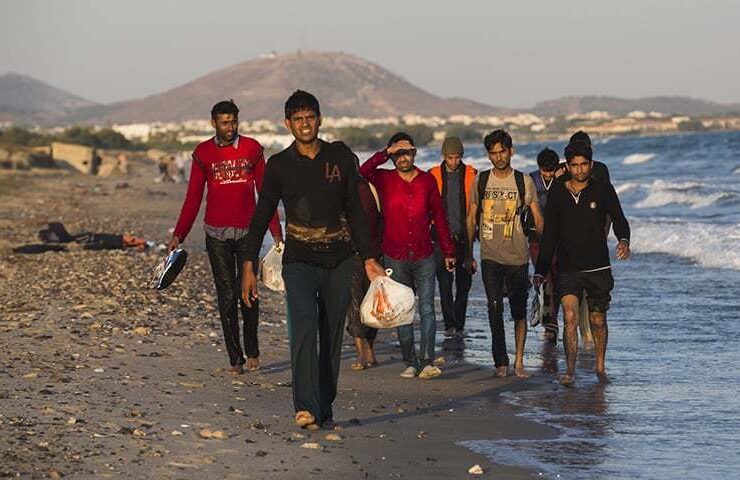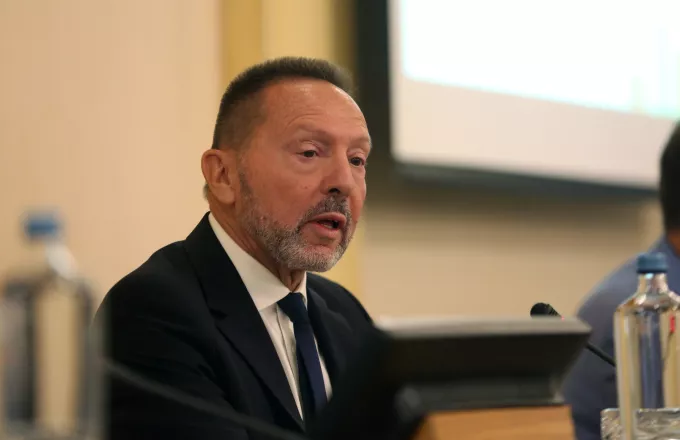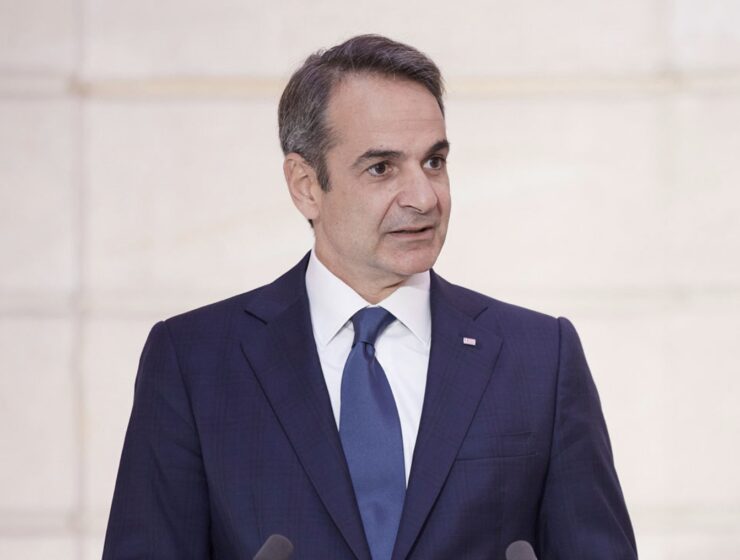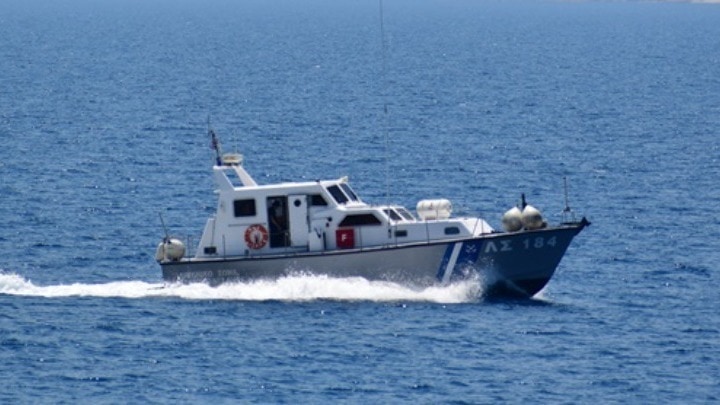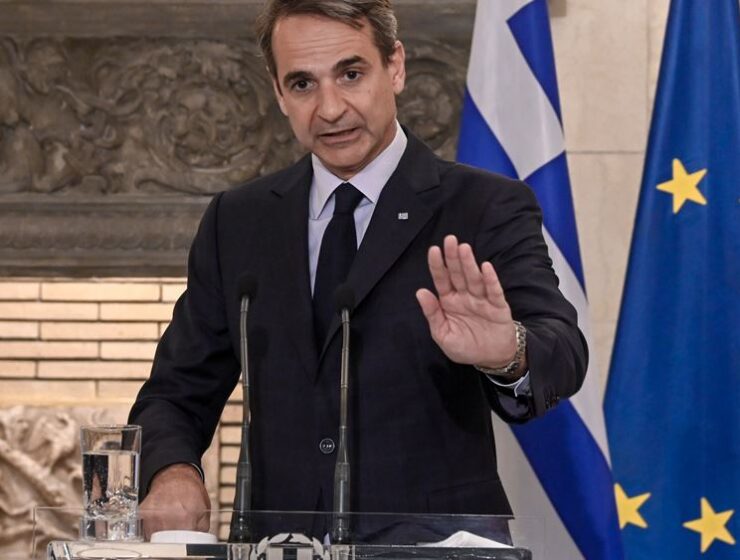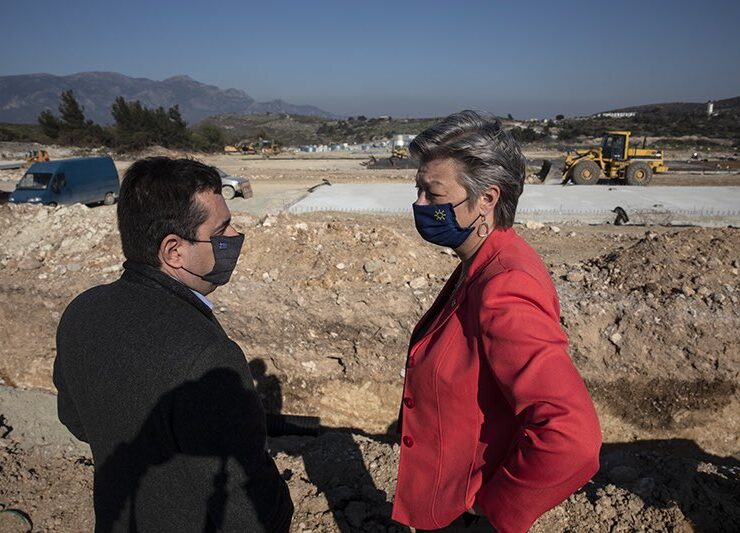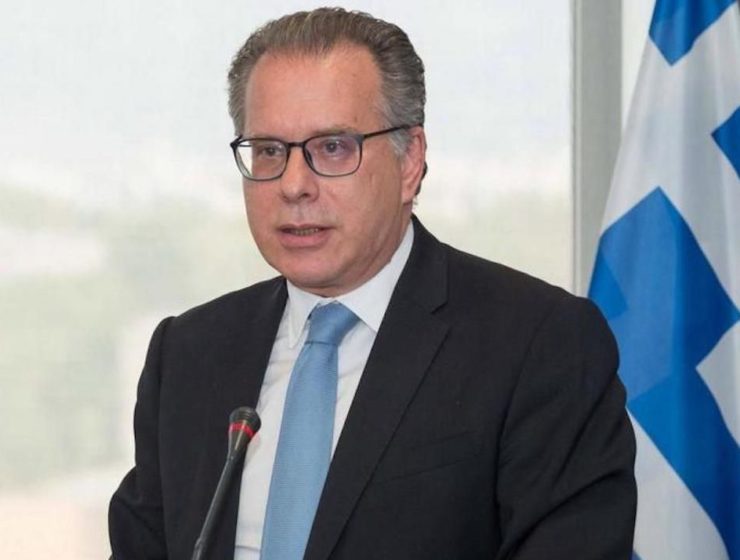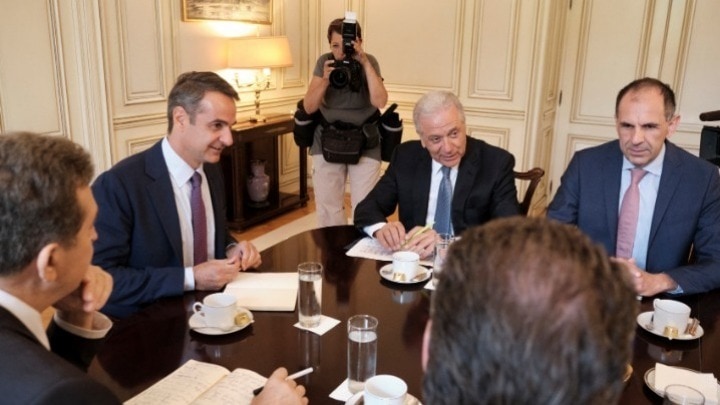On April 11, 2025, Italy made history by transferring 40 rejected asylum seekers to detention centers in Albania, marking the first time an EU nation has relocated migrants to a third country. This could set a precedent for Europe, with implications for Greece.
Tag: Migration Policy
Mitsotakis Addresses Key Issues at EU Summit: Cyprus Talks, Defense, and Migration Take Center Stage
Greek Prime Minister Kyriakos Mitsotakis arrived at the European Council summit in Brussels on Thursday, highlighting critical agenda items including Cyprus reunification talks, European defense strategies, and immigration reforms. He welcomed the UN Secretary-General’s involvement in sustaining Cyprus discussions, praised the EU’s new defense fund and flexibility proposals aligning with Greek positions, and stressed the urgency of implementing a returns regulation to secure borders and expedite repatriations.
Greece’s Minister of Migration and Asylum, Nikos Panagiotopoulos, highlighted the impact of geopolitical crises and climate change on migration flows at the Thessaloniki Summit 2025. Emphasizing the importance of Greece-Cyprus-Egypt cooperation, he stressed the need to control illegal migration while promoting legal pathways to boost national economies. Panagiotopoulos also outlined Greece’s efforts at the EU level to improve asylum policies and streamline return processes for those not entitled to stay.
Greece strongly supports the India-Middle East-Europe Economic Corridor (IMEC) despite delays caused by the ongoing Israel-Gaza conflict, Greek Foreign Minister George Gerapetritis stated. He emphasized that the initiative, aimed at fostering peace and prosperity, remains a priority for Greece, India, and their partners. During his visit to India for Foreign Office Consultations, Gerapetritis also discussed strengthening bilateral trade, boosting connectivity through direct flights, and addressing migration challenges through a proposed agreement between the two nations. He expressed optimism about resolving regional conflicts and enhancing economic cooperation.
Greece has deported 40 migrants whose asylum applications were rejected, as part of a coordinated operation by the Hellenic Police, FRONTEX, and the Ministry of Migration and Asylum. Minister Nikolaos Panagiotopoulos reaffirmed Greece’s commitment to a strict but fair migration policy, emphasizing the need for a unified European strategy on deportations.
The European Union is planning a major overhaul of the 1951 Refugee Convention, potentially allowing member states to deport failed asylum seekers and criminals. This move, driven by the belief that the post-war agreement is outdated, could drastically change European migration policy and spark debate over human rights protections.
Germany’s political landscape is shifting as the CDU/CSU, led by Friedrich Merz, secures a narrow majority for stringent asylum reform in the Bundestag. This development illustrates new alliances and a departure from traditional party lines, with implications for both migration policy and the nation’s energy strategy.
Greece recorded the highest rate of first-time asylum applications in the EU relative to its population in August 2024, with 59.9 applications per hundred thousand people, far exceeding the EU average of 15.4. While total EU asylum applications fell by nearly 25% compared to last year, Greece remains a key entry point for migrants, highlighting the ongoing challenges of equitable burden-sharing across member states.
The election of Donald Trump as U.S. President could negatively impact both American and European economies if his campaign promises are enacted, warned Yannis Stournaras, Governor of the Bank of Greece and ECB board member. Speaking at a public debt conference, Stournaras highlighted potential inflation and public debt rises in the U.S., alongside growth slowdowns and euro exchange rate fluctuations in Europe. He emphasized that the ECB’s monetary policy remains unchanged until more concrete policy details are revealed.
Europe’s top human rights body, the Council of Europe, has urged Cyprus to allow nearly 35 migrants stranded in a UN buffer zone to apply for asylum. Commissioner Michael O’Flaherty highlighted the harsh conditions these individuals face and called on Cyprus to meet its obligations under international law while addressing migration challenges along the island’s divided borders.
Germany’s recent move to effectively dismantle parts of the Schengen Agreement and repatriate migrants and…
Greek Prime Minister Kyriakos Mitsotakis criticizes Germany’s decision to implement border controls, arguing that it could undermine the Schengen Area and highlighting concerns about Germany’s welfare policies potentially attracting more migrants. The discussion highlights ongoing EU challenges in managing migration and asylum policies.
In a recent meeting with Austrian Chancellor Karl Nehammer, Prime Minister Kyriakos Mitsotakis highlighted key migration and border security issues, underscoring the importance of EU member states retaining control over immigration policies rather than human traffickers
Pope Francis has condemned the Mediterranean as a “cemetery” for migrants, criticizing the pushback against those seeking refuge. He emphasized that many migrant deaths could have been prevented and called for safer pathways and global governance rooted in justice and solidarity to address the crisis.
Cyprus is leading a coalition of European nations in urging the EU to designate Syria as a safe country, citing Assad’s regained control over significant territory and the normalization of relations with key states. The initiative aims to facilitate the safe return of refugees as conditions stabilize.
Greece hailed the landmark overhaul of the EU asylum and migration rules following the renewed…
Greece’s Prime Minister Kyriakos Mitsotakis had a fiery exchange with a dutch journalist who questioned…
European Commissioner for Home Affairs Ylva Johansson on Monday called on Turkey to “urgently resume the return of…
Greece’s Alternate Civil Protection Minister responsible for Migration Policy, Giorgos Koumoutsakos raised the issue of…
Greece’s Prime Minister Kyriakos Mitsotakis announced key migration policy decisions on Monday following his meetings…


